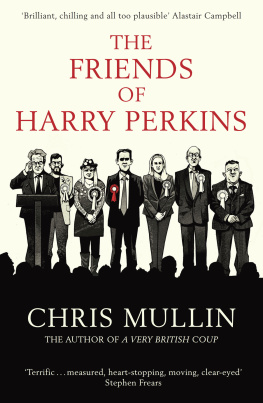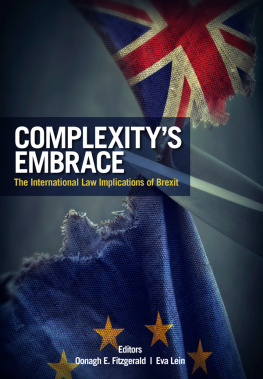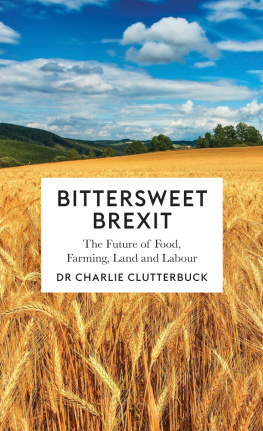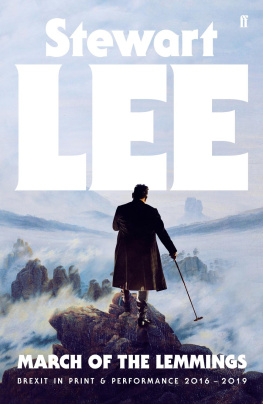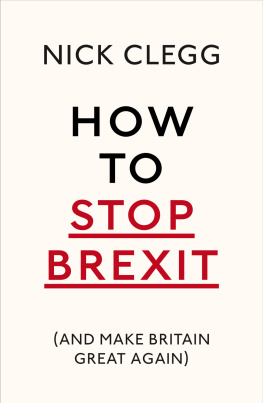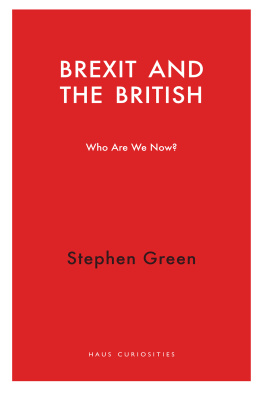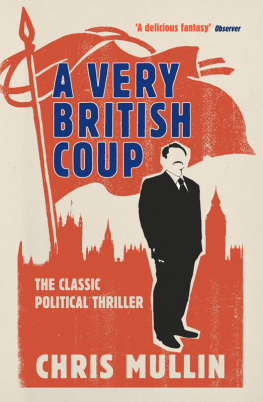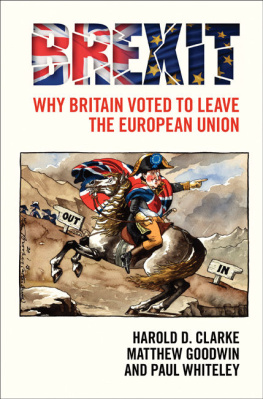I N MEMORY OF THE LATE Jo Cox MP
P REFACE
Many times in the nearly forty years since A Very British Coup was first published I have been asked if I planned to write a sequel. For most of that time I had no such plan, but here it is. As with its predecessor, The Friends of Harry Perkins is set in the near future in a political landscape that will be recognisable to anyone familiar with contemporary politics. An air of pessimism prevails. Post-Brexit Britain is not a happy place although, contrary to what some predicted, there has been no great Armageddon, just a long slow decline into insularity and irrelevance. As for the Labour Party, I regret to report that it has been in opposition for as long as anyone can remember. Charismatic leadership is urgently required. Enter Fred Thompson, a veteran of an earlier era.
The fact that Thompson turns out to be a pragmatist will be a disappointment to some. There are many in the Labour movement who prefer glorious defeats to the messy realities of victory. Had I known that Thompson was going to rise again from the ashes of the Perkins administration, Id have given him a more memorable name. Suffice to say, as readers of the earlier work will know, Thompson, a former journalist, cut his teeth as a political adviser and confidant of Perkins and was present at The Fall. He married Elizabeth Fain, the daughter of an earl and a former equerry to the king, with no shortage of contacts in the secret world. After the fall of Perkins, the young couple moved away to the Western Isles where Thompson was last heard of scratching a living working for the West Highland Free Press .
I had better mention, before someone else does, that as regards chronology a slight leap of imagination is required. A Very British Coup was set in the late 1980s and it is stretching the imagination somewhat to imagine that the movers and shakers of that era would still be active in politics today. Thompson himself would be in his mid-sixties, whereas here I would guess he is no more than about forty. Likewise Joan Cook and Jock Steeples, sole survivors of the ill-fated Perkins government, are unlikely to have remained active long enough to feature in a Thompson shadow cabinet. On this I must ask the readers forbearance.
Two other veterans of the earlier work are worthy of mention. Molly Spence, wife of the managing director of British Insulated Fuels, the company responsible for the near meltdown of the Windermere nuclear reactor. Her affair with Perkins was used to blackmail him into resignation. Finally, of course, there is the shadowy Sir Peregrine Craddock, architect of the coup which brought down the Perkins government. Although now long retired and increasingly frail, Sir Peregrine is, as we shall see, still a man of influence.
A Very British Coup has endured so long because a number of the events described were subsequently shown to be true. There was an M15 agent on the council of the Campaign for Nuclear Disarmament. The security service was vetting senior BBC personnel. And in 1987 a senior M15 officer, Peter Wright, caused a sensation with his claim that a group of M15 officers, of whom he was one, had plotted to undermine the government of Harold Wilson. Suddenly the possibility that the Establishment might conspire to bring down an elected government no longer seemed so remote. With the rise of Jeremy Corbyn, accompanied by warnings from a former head of M16 that his election would be profoundly dangerous for the nation, the subject is suddenly topical again. The publishers of A Very British Coup are cunningly marketing the latest edition as the novel that foretold the rise of Corbyn and it has been reprinted several times in the last two years.
Harry Perkins, a former Sheffield steelworker, was brilliantly brought to life by that great actor Ray McAnally in the award-winning television series based on the novel. Fred Thompson is a less colourful character, but as we shall see he too is a man whose hour has come. Or has it? Now read on.
Chris Mullin, December 2018
O NE
Harry Perkins was buried on the day that America declared war on China.
He was seen off in style. Sheffield City Council declared three days of mourning. His coffin, draped in the banner of his old trade union branch, lay in state in the vestibule of the City Hall. By the end of the third day, an estimated 50,000 people had filed past. His request to be buried with no flowers, no fuss was cheerfully ignored. Floral tributes lined the steps. People waited patiently in line to pass the coffin, straining to read the messages. Journalists amused themselves speculating about the origin of some of the anonymous wreaths. All my love, M. x, was widely held to be from Molly Spence, the woman whose affair with Perkins lit the long fuse that led to his downfall. Most interest, however, focused on a bouquet of white lilies bearing a handwritten message, To Harry Perkins, with affection and respect , followed by scrawled initials. The first letter was clearly a P, but the rest was illegible. Enquiry revealed that the order for the lilies had been placed in Somerset and the evidence pointed to Sir Peregrine Craddock. Nothing had been heard of Sir Peregrine for years (not that much was heard of him at any time during his long and distinguished career of public service). He would now be in his late eighties. Calls to his home, a Jacobean pile somewhat in need of renovation, were answered by an elderly woman who stated gruffly that Sir Peregrine was unavailable. Nothing new there. Sir Peregrine had never been available. Even now, nearly ten years after the momentous events that crowned his career and abruptly ended that of Harry Perkins, Sir Peregrines memoirs would have fetched a small fortune. There was no sign, however, that the great man had committed his version of events to paper. He remained discreet to the end.
Perkins was buried on a cold, clear day in February. By special resolution the city council unanimously decreed that the General Cemetery be reopened so that he could be laid to rest among Sheffields greatest sons. A space was found for him under a weeping ash, near the grave of the Chartist Samuel Holberry, one of Perkins few heroes. The crowds who followed his coffin were greater even than those who had followed Holberrys. Harry Perkins, said one commentator, was probably the last hero the British working classes will ever produce.
In death, Perkins attracted a much friendlier press than he had done in life. Those who had most reviled him were most fulsome in their tributes. Honourable to his fingertips, said The Times . The Sun filled its front page with a flattering portrait taken on the night of his greatest triumph, alongside the headline, Goodbye, Harry, Well Miss You. So far as anyone could recall it was the only friendly reference to Perkins that had ever appeared in the Sun. A giant among pygmies, said a leader in the Mail. It went on, In an age of Labour politicians who would run a mile at the mention of nuclear disarmament or come over faint at the whisper of the word socialism, we pay tribute to a man who stuck to his principles to the end...
Everyone who had loved Harry Perkins came to see him off. And so did some who had not. Lawrence Wainwright, who briefly displaced him as prime minister, was there. His presence near the head of the procession provoked low hissing from some sections of the crowd. Jock Steeples, a wise old owl, now in his late seventies but still active in parliament, marched the whole way. His craggy features instantly recognisable. Joan Cook, the firebrand who had once been home secretary, was there too, immaculate as ever. Alongside her was Perkins loyal sidekick, Fred Thompson, who with his posh young wife, Elizabeth Fain, had disappeared to a croft in the Western Isles where he grew vegetables and scratched a living writing for a local newspaper. He was also an occasional columnist and book reviewer in the national press.

